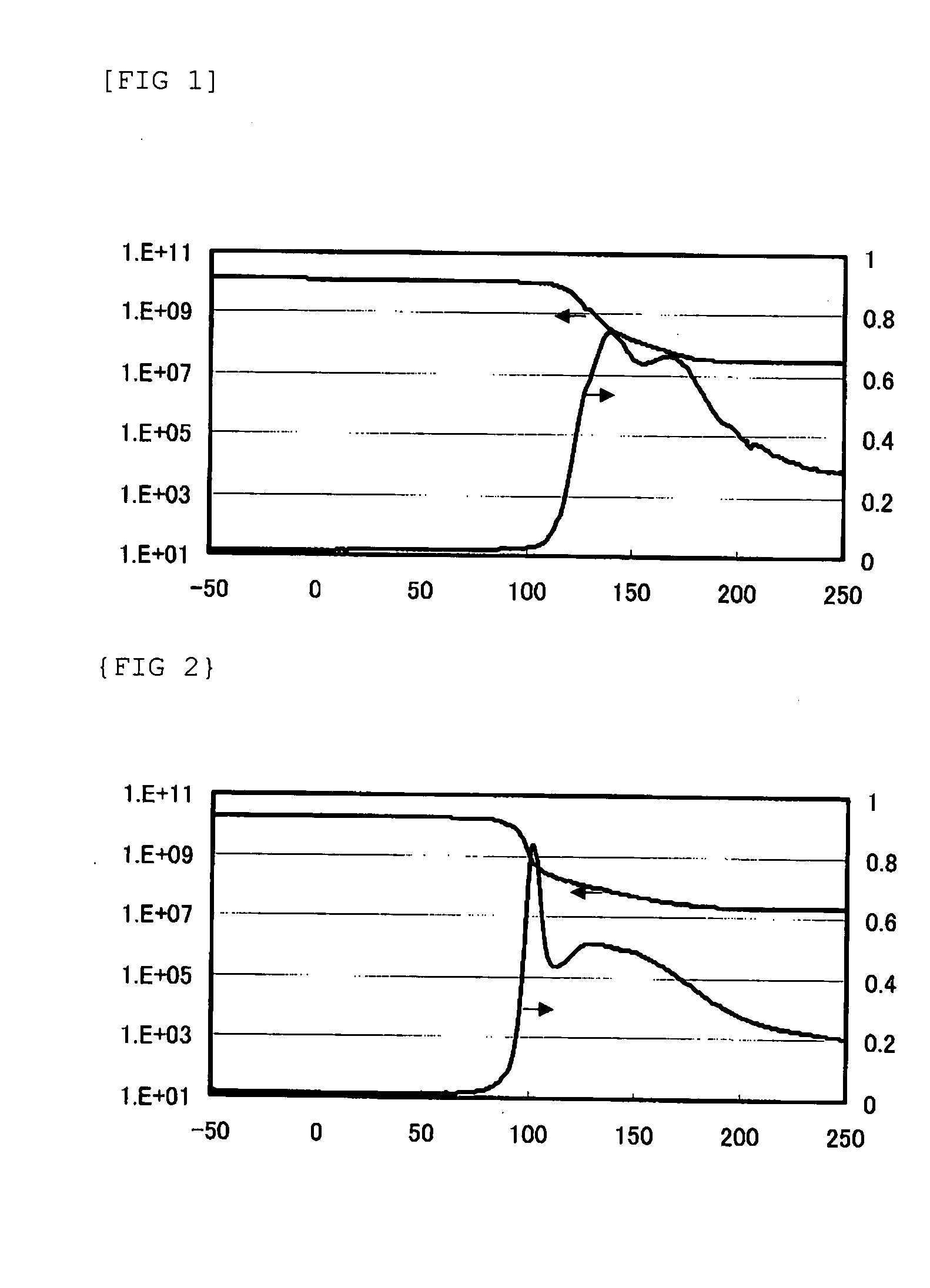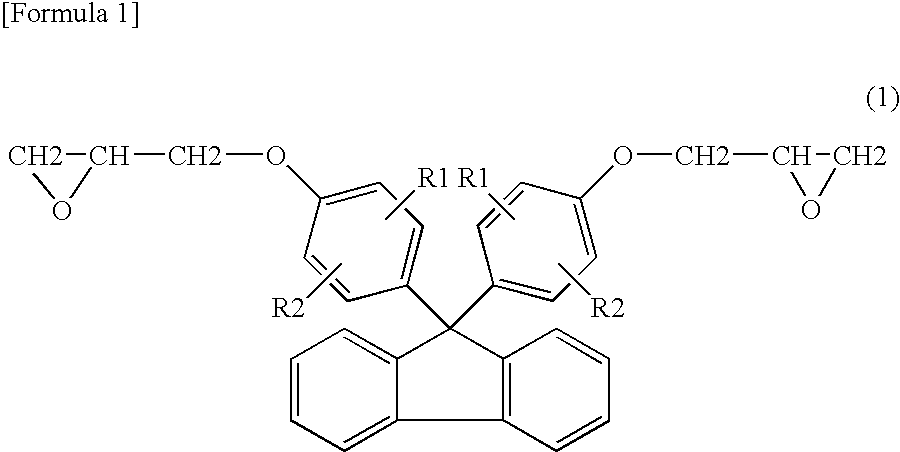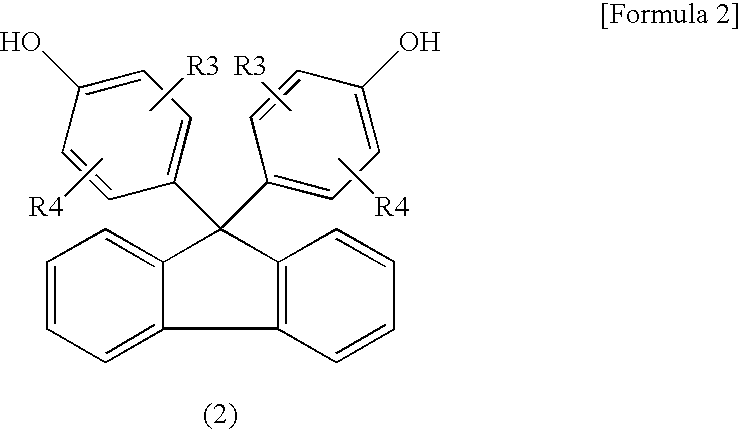Method for Producing Fiber-Reinforced Thermally Meltable Epoxy Resin
a fiber-reinforced technology, which is applied in the field of fiber-reinforced thermally meltable epoxy resin production, can solve the problems of reducing the strength of the fibers themselves, reducing the strength of the reinforcing fibers, and reducing the reuse, recycling and fabrication of fiber-reinforced thermosetting resins. the effect of high melting initiation temperature and excellent heat resistan
Inactive Publication Date: 2009-08-27
NAGASE CHEMTEX CORPORATION +1
View PDF5 Cites 6 Cited by
- Summary
- Abstract
- Description
- Claims
- Application Information
AI Technical Summary
Benefits of technology
[0009]According to the production method of the present invention, it is possible to obtain a thermally meltable epoxy resin having a high melting initiation temperature and to produce a fiber-reinforced thermally meltable epoxy resin having excellent heat resistance using the thermally meltable epoxy resin.
[0010]Further, the viscosity of a mixture of the reactive compounds is kept low during mixing of the reactive compounds with the reinforcing fibers, and therefore the wettability of the reinforcing fibers with the reactive compounds is excellent and voids do not remain in the fiber bundles, thereby enabling a high-quality composite material to be obtained. This makes it possible to easily produce a molded product of the composite material without defects such as voids even when the molded product has a complicated shape.
[0011]Further, the reinforcing fibers are first wetted with t
Problems solved by technology
A fiber-reinforced thermoplastic resin (FRTP) is a composite material obtained by reinforcing a thermoplastic resin with reinforcing fibers to increase its strength, and is reusable, recyclable, and fabricable, whereas a fiber-reinforced thermosetting resin obtained by reinforcing a thermosetting resin with reinforcing fibers is difficult to reuse, recycle, and fabricate.
However, it has been known that there are some problems caused by kneading a thermoplastic resin with reinforcing fibers.
As a result, the reinforcing fibers such as glass fibers are damaged due to high pressure and high temperature, and therefore the reinforcing fibers in a composite material are cut into staple fibers.
This reduces the strength of the fibers themselves, and finally deteriorates the strength properties of a molded FRTP using the composite material.
Further, since the thermoplastic resin has a high molecular weight, the reinforcing fibers are not sufficiently impregnated with the thermoplastic res
Method used
the structure of the environmentally friendly knitted fabric provided by the present invention; figure 2 Flow chart of the yarn wrapping machine for environmentally friendly knitted fabrics and storage devices; image 3 Is the parameter map of the yarn covering machine
View moreImage
Smart Image Click on the blue labels to locate them in the text.
Smart ImageViewing Examples
Examples
Experimental program
Comparison scheme
Effect test
 Login to View More
Login to View More PUM
| Property | Measurement | Unit |
|---|---|---|
| Melting point | aaaaa | aaaaa |
| Carrier mobility | aaaaa | aaaaa |
Login to View More
Abstract
Disclosed herein are a method for producing a fiber-reinforced thermally meltable epoxy resin having excellent heat resistance using a thermally meltable epoxy resin having a high melting initiation temperature and a fiber-reinforced plastic molded by the method. The method for producing a fiber-reinforced thermally meltable epoxy resin comprises the steps of: (I) impregnating reinforcing fibers with a compound (A) having two epoxy groups in one molecule and a compound (B) having two phenolic hydroxyl groups in one molecule; and (II) linearly polymerizing the compounds (A) and (B) impregnated into the reinforcing fibers by polyaddition reaction, wherein at least a part of the compound (A) and/or at least a part of the compound (B) are/is a compound having a fluorene skeleton, and the compound (A) and the compound (B) are mixed in such a ratio that the number of moles of epoxy groups in the compound (A) is 0.9 to 1.1 times the number of moles of phenolic hydroxyl groups in the compound (B).
Description
TECHNICAL FIELD[0001]The present invention relates to a method for producing a fiber-reinforced thermally meltable epoxy resin. More specifically, the present invention relates to a method for producing a fiber-reinforced thermally meltable epoxy resin using a thermally meltable epoxy resin produced using a bifunctional compound having a fluorene skeleton to have a high melting initiation temperature.BACKGROUND ART[0002]A fiber-reinforced thermoplastic resin (FRTP) is a composite material obtained by reinforcing a thermoplastic resin with reinforcing fibers to increase its strength, and is reusable, recyclable, and fabricable, whereas a fiber-reinforced thermosetting resin obtained by reinforcing a thermosetting resin with reinforcing fibers is difficult to reuse, recycle, and fabricate. For this reason, the fiber-reinforced thermoplastic resin has been used for various purposes in recent years. Such an FRTP is generally produced by kneading a thermoplastic resin with reinforcing fi...
Claims
the structure of the environmentally friendly knitted fabric provided by the present invention; figure 2 Flow chart of the yarn wrapping machine for environmentally friendly knitted fabrics and storage devices; image 3 Is the parameter map of the yarn covering machine
Login to View More Application Information
Patent Timeline
 Login to View More
Login to View More IPC IPC(8): C08L63/00
CPCC08G59/245C08G59/62C08J2363/02C08J5/043C08J5/24C08G59/621C08J5/244C08J5/243C08J5/249C08J5/248
Inventor NISHIDA, HIROFUMIHIRAYAMA, NORIO
Owner NAGASE CHEMTEX CORPORATION
Features
- R&D
- Intellectual Property
- Life Sciences
- Materials
- Tech Scout
Why Patsnap Eureka
- Unparalleled Data Quality
- Higher Quality Content
- 60% Fewer Hallucinations
Social media
Patsnap Eureka Blog
Learn More Browse by: Latest US Patents, China's latest patents, Technical Efficacy Thesaurus, Application Domain, Technology Topic, Popular Technical Reports.
© 2025 PatSnap. All rights reserved.Legal|Privacy policy|Modern Slavery Act Transparency Statement|Sitemap|About US| Contact US: help@patsnap.com



